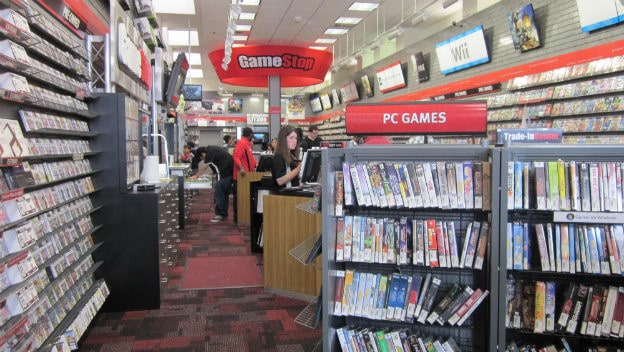GameStop ain’t doing so hot presently. Remember a while back, when rumors turned into an official announcement that GameStop was up for sale? That sale turned into literally nothing, as GameStop announced in January that, well, nobody stepped up to make a financially viable offer. The company ended up selling its Spring Mobile business to get some cash in and, as of this writing, is figuring out what to do with just under $750 million cash. Regardless, with share prices dropping sharply and the company continuing to struggle with “how the hell do we make money,” it seems like the brand is a ticking time bomb. But what happens when that bomb finally goes off? Not to mention that super-bad PR move of not wanting to close down right away during the initial COVID-19 scare (and taking way too long to do so).
Like it or not, GameStop provides services that you almost literally cannot get anywhere else. While many GameStop stories are full of groans about pushy ad-hoc upsells, bad trade credit deals, and complaints about cheap, kitschy merchandise, you kind of have to look at the bigger picture with GameStop. An individual visit to a store is kind of a crapshoot, but so is any other retail experience in 2020. That’s part of the problem leading to this company’s downfall of course, but we’ll get to that.
GameStop employs a lot of people, both directly and indirectly. The biggest issue with GameStop dying would be the displacement of tons of people just trying to make a living. That’s not just the people on the floor struggling to get hours. That includes corporate employees in overhead departments and people involved with subsidiary businesses. For example, GameStop owns Game Informer . Game Informer is one of the last remaining video game magazines and has managed to retain its high quality for years, thanks to GameStop. What happens if that backing goes away? It could very well be destroy the whole magazine and everyone who contributes to it. That alone would be disastrous.
Then, there’s the whole shopping experience of buying new games at retail. There are few other spaces that can currently support selling brand news games in a store. Sure, there’s the stuff about GameStop gutting new games for display, but generally speaking GameStop is the only store dedicated almost solely to games, or games culture. That’s special in its own way. Unfortunately, since publishers aren’t convinced they’re making enough money, well, ever, they’ve priced out any independent stores or smaller games from selling new games almost entirely. Also, double the intensity of this argument for anyone who lives in the more rural parts of the United States. Where specialty shops and high quality internet connections don’t exist. Yeah.
Sure, savvy people will buy from Amazon or digital marketplaces. But what about buying games secondhand? You can get good deals on flash sales and lightning deals and the like, but GameStop often has things like BOGO deals, trade bonuses, and other events that can really help budget gamers maximize their dollars. That sort of thing is valuable as well, especially on the scale GameStop is able to do it. Otherwise, folks would be left to hang out around pawn shops and flea markets to find decent game deals, which isn’t always easy with more recent titles.

Of course, GameStop has its big problems. Because of its massive growth from years past crashing into the difficulties in making money, a lot of the employees are suffering. Folks running the actual stores are competing for single-digit hours, and have historically had unrealistic goals thrust upon them by higher-ups. That’s no way to enjoy your job, and GameStop isn’t exactly making moves to take care of its staff. When it comes to, perhaps some of the most important parts of running a business, GameStop admittedly fails in a lot of ways.
I’m not necessarily suggesting here that GameStop isn’t eating its lunch in a way it didn’t have coming for a long time. Taking advantage of customers and staff alike was the company M.O. for a long time, and even efforts to walk some of that stuff back in recent years hasn’t helped the company’s reputation. But because of how big GameStop has been in the past, there’s a lot of video game infrastructure built into its existence. We’re talking jobs, we’re talking games shopping in general, and we’re even talking cool collectible stuff. GameStop is the only option for many people in this country, and there are outfits like Game Informer that do a lot of good work that would suffer from the ripples of a GameStop closure. While the GameStop discourse continues, it might help us to keep that sort of thing in mind.
